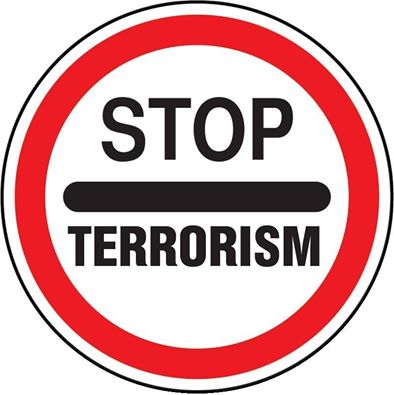EXTREMISM AND TERRORISM PREVENTION
Extremism and terrorism are now a real threat to national security in the world.
Extremism is an extremely great danger that can shake any, even the most stable and prosperous society.
One of the key directions in the fight against extremist and terrorist manifestations in the public environment is their prevention.
It is especially important to carry out such preventive work among young people, as it is the young generation that, due to a number of different factors, is the most vulnerable to the negative influence of various anti-social and criminal groups. Social and material insecurity of youth, frequent maximalism in assessments and judgments, psychological immaturity, significant dependence on other people's opinions - these are just some of the reasons that allow us to talk about the possibility of easy dissemination of radical ideas among Russian youth. Meanwhile, these ideas are spreading significantly among young people.
Leaders of extremist groups of various kinds lure young people into their associations, often promising them an easy solution to all problems, including material ones. Unstrengthened young minds often do not even think about the fact that by participating in the activities of such groups, they not only fail to solve their existing problems, but also create numerous new ones for themselves and, in fact, destroy their future.
The Internet has recently become the most effective means of mass informational influence of terrorists on young people. The reasons for the popularity of the Internet by criminals are easy access to the audience, provision of anonymous communication, weak regulation of this issue at the state level, global distribution, high speed of information transmission, cheapness and ease of use, multimedia capabilities.
At present, virtually all types of organizations using extremist and terrorist methods in their activities are represented on the World Wide Web. The number of sites containing extremist materials exceeds seven thousand, including more than one hundred and fifty Russian-language sites, and it is constantly growing.
Special services and law enforcement agencies have recorded the use by the ideologues of terrorist organizations of ever new means of communication to reach the largest possible audience. Thus, in parallel with the development of mobile communication services, extremist literature can be downloaded to a cell phone, corresponding E-mail, MMS and SMS mailings are becoming available, etc.
Along with the use of the latest information technologies, extremist and terrorist organizations also use traditional channels of social interaction to recruit young people.
A significant ideological resource for extremists, terrorists and gang subpopulations is the training of young Tajik citizens in foreign theological educational institutions. The main category of students is young people aged 20-25.
In order to counter these negative trends, state and local authorities, with the involvement of civil society, should focus their efforts on the following areas:
- information and analytical support of countering terrorism and extremism (issuance of all kinds of memos, brochures, books, appeals, posters, social advertising, objective publications in the press on the activities of law enforcement agencies, operational headquarters and anti-terrorist commissions, creation of thematic documentaries and videos, etc.);
- propaganda support (timely delivery of objective information on the results of activities in the above sphere); counter-propaganda (adequate and timely response to misinformation, speeches, statements of gang leaders who have ceased their criminal activities, distribution of leaflets and propaganda literature);
- ideological (formation of religious and interethnic tolerance, patriotism, healthy lifestyle, priorities of universal values, etc.);
- Organizational (assistance to the activities of public and religious associations of traditional constructive, including anti-terrorist, orientation;
- interaction with the media, conferences, meetings, round tables, competitions for the best anti-terrorist materials, etc.);
- Education (creation of a system for training specialists, including civilians, in the field of information counter-terrorism). Such work should be conducted aggressively, including defending the country's interests in this area at the international level.
Undoubtedly, preventing extremism and terrorism among young people is much more profitable than eliminating the consequences of such phenomena. In particular, it is possible to propose the following actions aimed at reducing radical manifestations in the youth environment:
The first is to carry out comprehensive measures for the formation of legal culture in the youth environment. In particular, this could be facilitated by a significant expansion of the legal component in upbringing and education. Knowledge of one's own rights and freedoms will help the young generation develop a sense of respect for the rights and freedoms of others, including their life, health and dignity.
The second is to foster in young people a tolerant outlook, a tolerant attitude towards all people, regardless of their nationality, religion, social, property status and other circumstances. Every person should be taught from childhood that it is necessary to respect all people, regardless of any circumstances, and that people should not be divided on any grounds. This will help to counteract various types of religious, national and social extremism.
he third is to improve the issues of leisure and recreation of young people. It is no secret that many young people fall into various radical organizations largely due to the lack of desire and often the lack of opportunity to spend their free time with the benefit of their soul and body. In particular, the state should make sure that not only in large cities, but also in the smallest settlements, clubs, houses of culture, cinemas, museums and other social and cultural institutions are active. It is also necessary to more actively promote healthy lifestyles, sports and physical education among young people. It is important to note that these activities should be accessible to all young people in material terms.
Fourth, it is necessary to increase the level of social and material protection of young people, to help young specialists find jobs, and to support housing programs for young people.
Head of the department of children’s infectious diseases
c.m.s., associate professor Saidmuradova G.M.
translated Ismoilov R.

